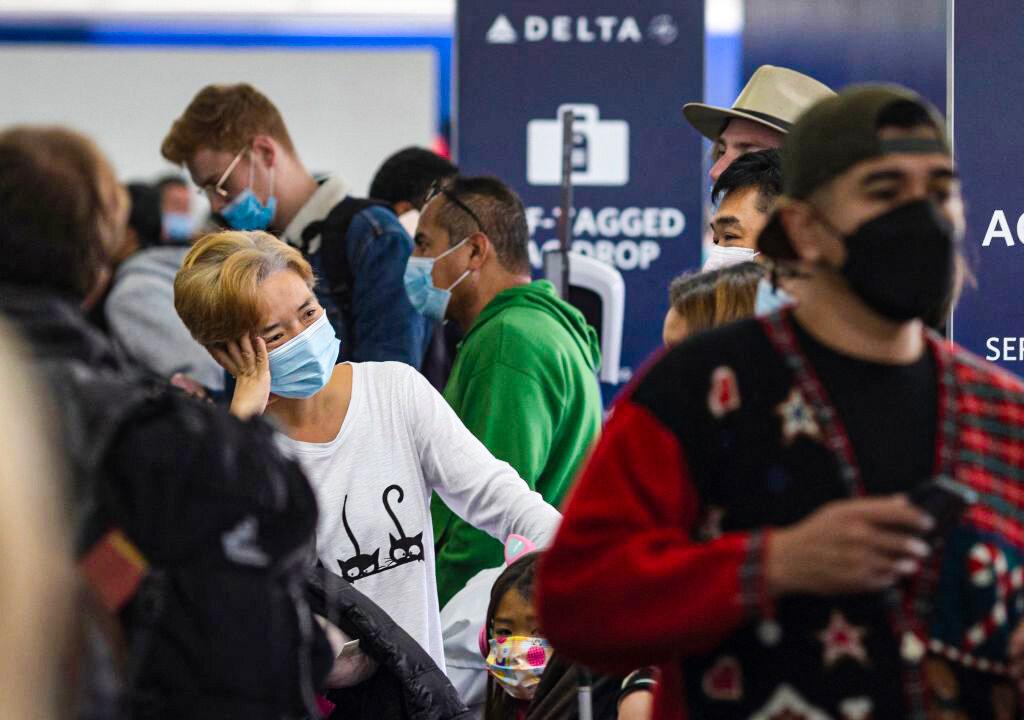American travelers seemed to shrug off fears of the Omicron variant as they took to the skies with confidence on Christmas Eve, with airport security data showing over twice as many people flying on Dec. 24 compared to the same day last year, even as multiple airlines across the country canceled hundreds of flights.
The Transportation Security Administration (TSA) said in a Dec. 25 tweet that over 1.7 million travelers were screened at checkpoints across the United States on Christmas Eve, a number that’s over twice as high as the nearly 847,000 screened on the same day last year.





